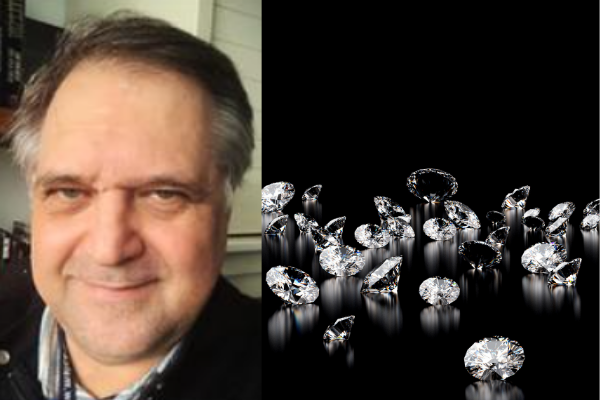The Israeli-Belgian dual national, Erez Jacob Rivlin, lives in Antwerp, but a decade ago his life irreversibly changed. The 58-year-old is one of ten Belgians on Russia’s Interpol list for suspected fraud.
For the first time, he told De Morgen how he accidentally discovered it himself in 2009, when Googling his own name. “Red Notice”, it said next to a photo of Rivlin on the Interpol website. “Born in Israel, Belgian nationality and wanted by Russia for fraud.”
“That was my personal atomic bomb,” he said. “The Interpol logo, the photo of me looking like a criminal… After that, everything was different.”
“What do you do once you discover something like that? Do you tell your kids? Your wife? Your friends, your banker, your government?”
Ever since that day, Rivlin lost his freedom. Travelling is close to impossible, as airport employees immediately get a warning on their screen. A few years ago, when Rivlin was visiting the Diamond Circle (diamond bourse Diamantkring) in Antwerp, he was handcuffed by police.
He was held for an hour and a half. “That’s how I’ve been living for over ten years now. You are actually obliged to report me.”
One document, that has become more important than his ID card, is his “letter to freedom”: a public prosecutor wrote that Belgium does not extradite nationals on suspicion of fraud.
Clueless
Rivlin concluded that he must have been convicted of fraud in Russia sometime in 2009, shortly before his name appeared on Interpol. But he was never informed of this - not before the trial, not during and not afterwards.
“How can you call something like that justice?” he wonders. “I am the first foreigner to be convicted in absentia in a Russian court.”
Related News
- Protests against trade of Russian diamonds in Antwerp
- End of diamond trade would make Ukraine's situation worse, says De Croo
- 'Peace is worth more than diamonds': Zelenskyy addresses Belgium's Parliament
Rivlin says he spent more than €30,000 in lawyers’ fees, but with no success. “My lawsuit has been classified under the highest security level of the FSB (the Russian Secret Service), it is top secret.”
Root cause
But he does know what the conviction is based on: a dispute with Russian diamond giant Alrosa, which does business in Antwerp. As a consultant in the diamond industry, he has been working for Belgian companies on the African continent since the 1980s.
In 1992, he managed to convince diamond trader Georges Evens to focus on the Russian diamond production.
Two years later, he briefly advised the Yeltsin government, after which he moved to Belgium, married a Flemish woman and obtained Belgian nationality. In 2003, he founded his own company in Antwerp, Yofi Diamonds.
Soon after Yofi and a subsidiary of Alrosa, Orel Almaz, got into a contract together, things went down. Rivlin says the diamonds Orel Almaz sold him did not have the value the Russians had promised. “They all had to be re-polished, otherwise they would be unsaleable. I demanded compensation.”
In Russia, the story was different. Business newspaper Kommersant reported that Orel Almaz’s general manager had to resign on suspicion of fraud and the company went bankrupt, because the Belgian company Yofi never officially paid for two batches of diamonds worth $2.5 million dollars.
That is when the Russian prosecutor’s office opened a criminal case. Rivlin claims it is unfounded. “Orel Almaz’s boss came to Antwerp in 2005, with people from Alrosa. In the lobby of the Hyllit Hotel, he admitted that he had cheated me.”
Failing is not an option
While Rivlin expected them to agree to his compensation offer, one of the men called Rivlin a “criminal whom they would follow around the world via Interpol”. Later, an Alrosa CEO told him it was an FSB agent who had spoken to Russian President Vladimir Putin just before his trip to Antwerp.
“In Putin’s government, mistakes are not tolerated,” Rivlin explains. “Like under Stalin, failure does not exist. And diamonds are too important. If they admitted that I was right, they wouldn’t only have to pay, but also change the entire control system for diamonds.”
Putin’s ‘true face’
Rivlin is currently working on a book about his case, aiming to show the “true face” of Putin. At the same time, he understands the Belgian decision to fight against the sanctions on the diamond trade with Russia.
“The US sanctions are not without effect. Several diamond traders, including Tiffany and Cartier, no longer want diamonds of Russian origin and customs are tightening their controls. The sanctions have already reached Antwerp, whether it likes it or not. The US succeeds where industry organizations fail.”

